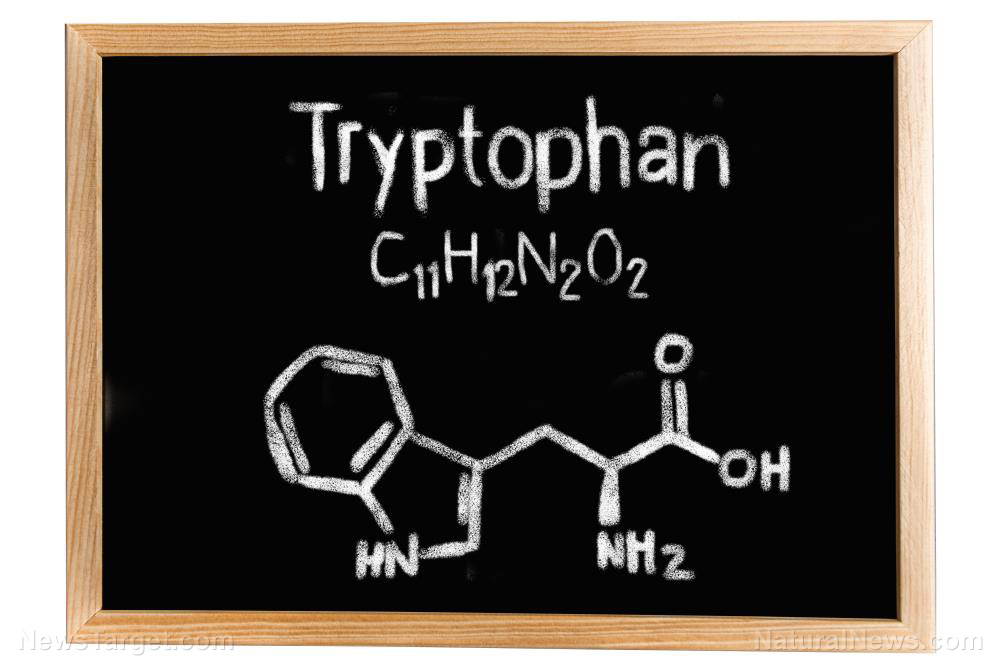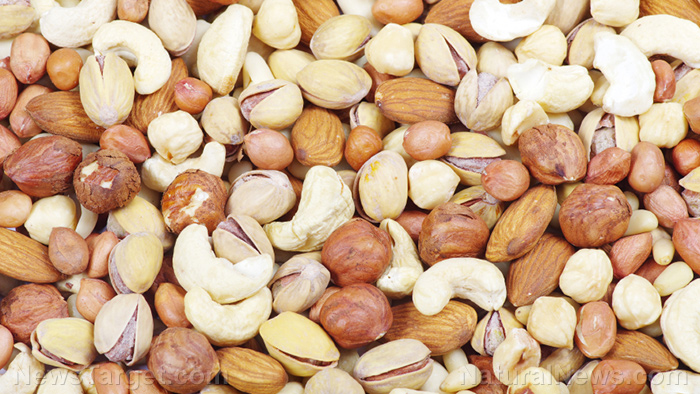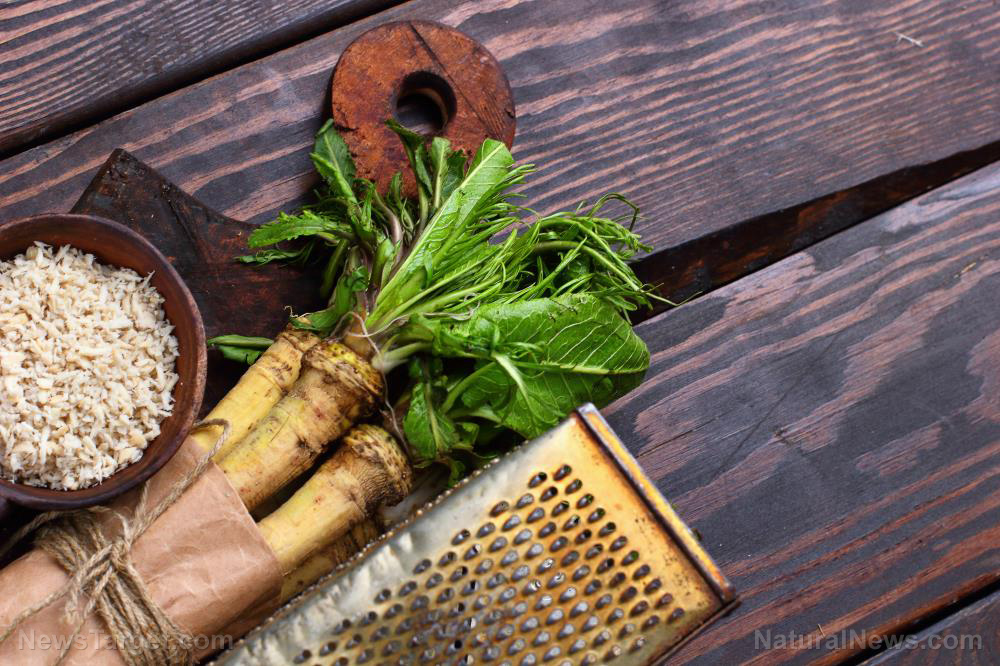Relieve tension headaches and ease digestive issues with a soothing cup of peppermint tea
11/17/2019 / By Grace Olson

Peppermint is a popular herb with a minty flavor and widely known medicinal properties. The herb can be used as an essential oil or as herbal tea.
Peppermint tea is known for its soothing, cool flavor and pleasant smell. The presence of compounds like menthone, limonene, and menthol within the leaves contribute to this effect. Drinkers of peppermint tea enjoy both its flavor and health benefits.
Benefits of drinking peppermint tea
Peppermint exhibits soothing and muscle-relaxing qualities. Drinking a cup of peppermint tea puts those qualities into effect. Try one to experience the following benefits:
1. Relief from tension headaches
A bad headache causes people to reach out for painkillers and other medication, which cause side effects that can only worsen the headache. To avoid these adverse effects, try peppermint tea instead.
When a person is experiencing a headache, the blood vessels in the painful area are constricted, so blood cannot flow properly. Drinking peppermint pea opens up those blood vessels, which offers pain relief.
Studies have shown that the topical application of peppermint oil can also relieve headaches.
2. Improve digestive issues
Peppermint tea is known to treat some digestive problems, including stomach pains, stomach aches, heartburn, indigestion, gas, and diarrhea, among others. Some health practitioners also recommend it for people who suffer from irritable bowel syndrome (IBS). It is best taken after a meal or at the onset of a stomach problem.
The primary ingredient for this effect is menthol. This is the compound that gives peppermint its icy-hot taste. Some experts suggest that menthol is the main contributor to peppermint tea’s antiseptic and antibacterial properties. These qualities help improve digestion and overall gut health.
3. Aids nasal congestion
Aside from releasing pleasant smells, essential oils may contain antibacterial properties, which can ease some kinds of upper respiratory infections, like colds. The smell of peppermint, including the vapors from tea, is one of them. (Related: Minty relief: Peppermint oil can be used to address esophagus disorders, suggests study.)
The menthol in peppermint tea acts as a decongestant. It helps calm down inflamed tissues in the sinuses and the throat and thins out the accumulated mucus. In this manner, peppermint tea clears the aerial passageways and helps the person breathe better.
4. Relief from menstrual cramps
One study showed that drinking peppermint tea may offer pain relief for women experiencing menstrual cramps or dysmenorrhea. In a double-blinded randomized crossover study, the researchers compared the effects of ingesting peppermint capsule and a placebo among 127 students. Findings revealed that the intensity and duration of pain were significantly less in the peppermint group than the placebo group.
Ingesting peppermint as tea produces a similar effect. For women suffering from dysmenorrhea, consider drinking two to three cups daily on the days leading to menstruation.
How to prepare peppermint tea
One of the key advantages of peppermint tea is its availability and accessibility. If you’re interested in making it, you may check your local grocery store or tea retailers. Moreover, you can grow your own peppermint.
Try brewing a cup of peppermint tea by following the steps below:
- Use fresh or dried peppermint leaves. For one cup of water, a person should add one tablespoon or one teabag of peppermint leaves.
- Boil two cups of water in a pot. Bring it to a boil, then turn off the heat.
- Add the leaves to the water. Let it soak for at least five minutes, or according to how strong you want the taste.
- Strain the tea into a mug.
- Enjoy it while hot.
You can add a small amount of honey, especially if you have a sore throat. Peppermint tea can also be mixed with other herbs like lavender and ginger for added benefits.
Peppermint tea is both delicious and healthy. Learn more about peppermint and other natural remedies for digestive problems at Remedies.news.
Sources include:
Tagged Under: alternative medicine, anxiety relief, digestion, food cures, food is medicine, headache, herbal medicine, herbal tea, Herbs, natural cures, natural health, natural medicine, pain relief, peppermint, peppermint tea, prevention, remedies
RECENT NEWS & ARTICLES
FoodCures.News is a fact-based public education website published by Food Cures News Features, LLC.
All content copyright © 2018 by Food Cures News Features, LLC.
Contact Us with Tips or Corrections
All trademarks, registered trademarks and servicemarks mentioned on this site are the property of their respective owners.




















